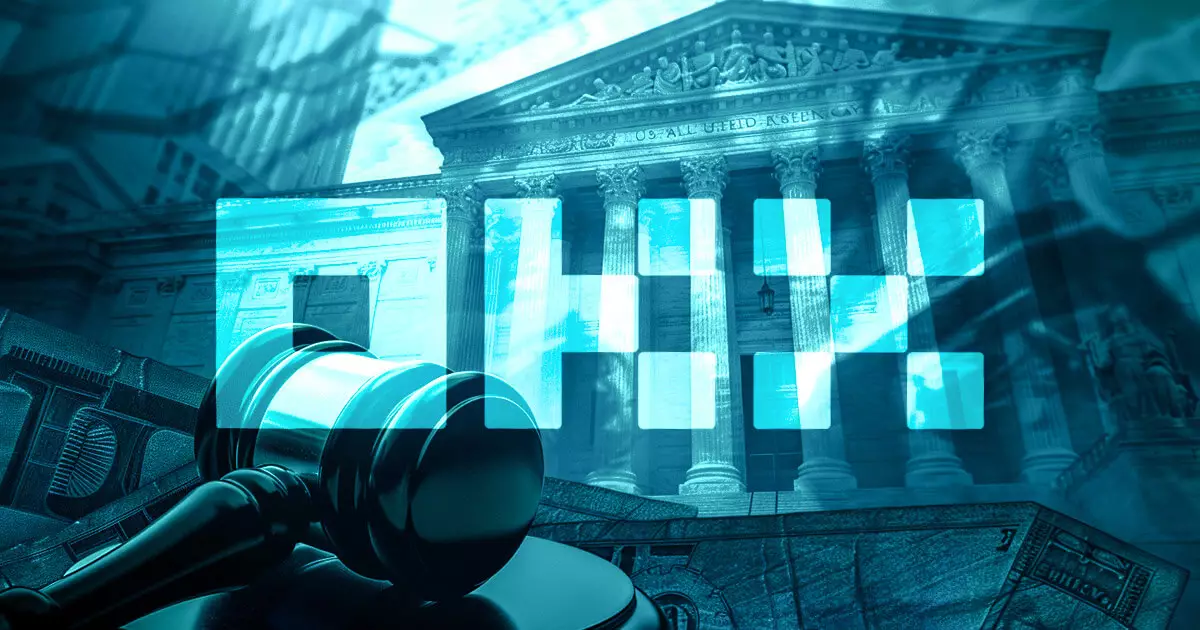Recently, the cryptocurrency exchange OKX faced significant legal scrutiny, leading to a hefty settlement of over $500 million with U.S. authorities. The company’s CEO, Star Xu, publicly acknowledged past shortcomings in adhering to regulations while emphasizing that U.S. customers made up a minor segment of their overall user demographic. This episode unveils a critical narrative concerning cryptocurrency platforms operating amidst complex regulatory landscapes, demonstrating how past noncompliance can precipitate drastic financial and reputational repercussions for such entities.
Details of the Settlement
Aux Cayes Fintech, the operator of OKX, admitted to running an unregistered money-transmitting business within U.S. borders. This admission was crucial as it laid the groundwork for understanding the financial implications of the settlement. The penalties included an $84 million fine and forfeiture of an astonishing $420 million tied to transactions involving U.S.-based clientele. This case highlights the intricacies involved in anti-money laundering (AML) regulations, exposing the vulnerabilities that can exist when exchanges fail to implement adequate safeguards. Additionally, the Department of Justice revealed that OKX’s oversight resulted in over $5 billion in suspicious transactions, accentuating the critical need for stringent compliance mechanisms within the cryptocurrency sector.
Officials described OKX’s operational lapses as flagrant violations of U.S. laws, indicating a deliberate effort to bypass established protocols, including anti-money laundering and customer verification procedures. Even more alarming was the allegation that the company allegedly encouraged U.S. users to misrepresent their identities to access its services, demonstrating a blatant disregard for regulatory norms. FBI Assistant Director James Dennehy articulated the severity of these actions, underscoring a pattern of noncompliance that endangered the integrity of the financial system.
Despite the findings, OKX maintains that these compliance failures stemmed from legacy issues rather than a systematic disregard for regulations. In its rebuttal, the exchange highlighted that the transgressions did not harm customers, nor were there disciplinary actions taken against employees. This subtle defense seeks to convey that the company is committed to respecting regulations across all jurisdictions in which it operates.
In light of the settlement, OKX is positioning itself as an exemplar of regulatory compliance in the cryptocurrency domain. Xu articulated a vision for making the exchange a global benchmark for compliance, vowing to collaborate with regulatory bodies to establish best practices across diverse markets. He asserted that the company’s compliance controls have evolved into some of the most robust in the industry, effectively signaling a new era of operational practices aimed at restoring trust among users and regulators alike.
This settlement unfolds at a pivotal time for other cryptocurrency platforms, as competitors like Coinbase and Robinhood have recently avoided similar penalties. As the cryptocurrency sector continues to mature, the pressure for compliance will escalate, making it imperative for exchanges to proactively educate themselves and adapt to regulatory expectations. By learning from its past and committing to a future of integrity, OKX represents a crucial case study in the ongoing struggle for legitimacy within the fast-evolving world of digital currencies.














